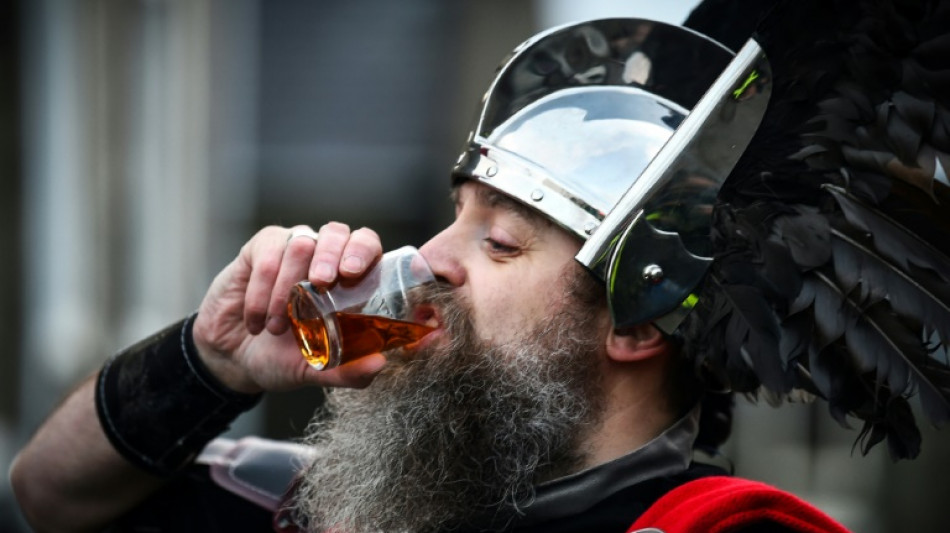
'Men only' rule finally lifted by Shetland Viking festival

Women and girls have finally been allowed to take part in a torchlit procession on Tuesday at a festival in Shetland celebrating the Scottish islands' Viking past.
The committee in charge of the "Up Helly Aa" festival in Shetland's main town of Lerwick announced last year that it was time to lift a ban on women taking part in the traditional procession.
The event, which marks the end of the Christmas season, is popular among tourists.
It traditionally involves around 1,000 male participants known as guizers, who wear Viking dress and divide into squads to parade through the town.
The procession is led by the Guizer Jarl, or chief guizer, and culminates in the participants using their flaming torches to set ablaze a replica Viking longship.
The modern event, first held in 1881, is known for its festive parties that often involve traditional Shetland dancing and copious alcohol consumption.
Rural "Up Helly Aa" processions on Shetland, which lies in the middle of the North Sea some 400 miles (640 kilometres) from Edinburgh, started allowing women to take part in 2015.
But the town of Lerwick's committee initially stood firm against allowing female participants to get involved in celebrating the island's Norse heritage.
This year -- despite the lifting of the gender restrictions -- there are no women in the main Jarl squad which leads the procession. However, women are taking part in other historic costumed squads involved in the event.
Festival organisers said it was not necessarily a surprise that there were no female participants for the 2023 Jarl Squad, since it was formed back in 2021, before the lifting of gender restrictions was announced in June 2022.
"It is expected that females participating in the Jarl Squad will evolve in the coming years, but we'll see females participating in some of the other 46 squads from the 2023 festival," the "Up Helly Aa" committee said ahead of the event.
The torch-lit processions and longboat burning are an echo of pagan Norse rituals -- the Shetland and neighbouring Orkney Islands were ruled by the Norse for about 500 years until they became part of Scotland in 1468.
K. Petersen--BTZ

 London
London

 Manchester
Manchester
 Glasgow
Glasgow
 Dublin
Dublin
 Belfast
Belfast
 Washington
Washington
 Denver
Denver
 Atlanta
Atlanta
 Dallas
Dallas
 Houston Texas
Houston Texas
 New Orleans
New Orleans
 El Paso
El Paso
 Phoenix
Phoenix
 Los Angeles
Los Angeles



